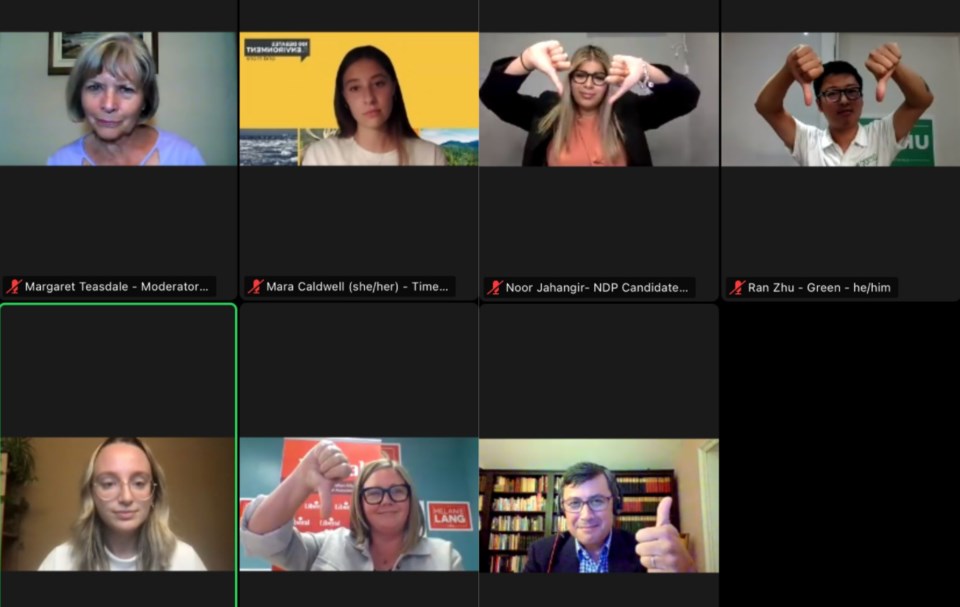As federal party leaders faced off at the national French language debate, local Wellington–Halton Hills candidates sat down at their computers to talk about environmental issues and climate change on Wednesday evening.
The debate, hosted by the Halton Environmental Network, Canadian Federation of University Women Georgetown and Halton Hills Public Library, was part of the national 100 Debates on the Environment initiative organized by GreenPAC.
Over the course of around an hour and half, candidates from the four major parties were given two minutes each to respond to a series of questions, largely focusing on climate change but also touching on issues including missing and murdered Indigenous women and girls, racism, and long-term care.
In terms of addressing the climate emergency, incumbent Conservative Michael Chong promised to work with international allies to set a consistent price on carbon across the United States, the United Kingdom and the European Union. He also wanted to see “carbon border adjustments” to create a trading zone insulated from unfair competition from jurisdictions with weaker environmental standards like China.
“I believe strongly that we need to act on climate change,” Chong said. “But at the same time, we need to do it in a way that ensures that … our jobs here at home aren’t simply exported to places where there is a lower price on carbon and to a place were there aren’t the same environmental standards.”
Green candidate Ran Zhu said his party would “slash” carbon emissions to 60 per cent below 2005 levels by 2030, using an annual carbon tax increase of $25 a year.
“This is realistic, it’s what scientists tell us we need to do and it’s the most reduction out all four major parties,” he said.
Zhu promised the Greens would cancel pipeline projects and ban fracking if elected, and called people who think that means oil and gas workers won’t have jobs “alarmists.”
“The Green Party cares about a just transition,” said Zhu. “We're looking forward to implementing job training programs to transition the sector into a long term sustainable and clean industry.”
Liberal Melanie Lang said her party has taken climate change seriously “from the beginning.”
“Carbon pollution is no longer free in Canada and we even invested $100 billion in climate action and green initiatives in just six years,” Lang said.
She highlighted a “greener homes grant,” rebates for electric vehicles and funding for more charging stations, as ways the Liberals would “reduce emissions and make our homes and infrastructure stronger,” with the goal of reaching net-zero emissions by 2050.
In terms of mitigating extreme weather events caused by climate change, Lang promised the Liberal would train more community fire fighters and complete mapping of flood risk zones.
NDP candidate Noor Jahangir took aim at competitors saying "the Conservatives say the climate crisis isn’t real and the Liberals just act like it.”
“Consecutive Liberal and Conservative governments have continuously failed to meaningfully tackle the climate crisis,” Jahangir said. “Justin Trudeau has missed every single climate target that has been set, has presided over the worst greenhouse gas reduction efforts in the G7, and has failed to reduce emissions.”
She promised the NDP would end fossil fuel subsidies and create “thousands of good paying jobs by investing in clean energy, energy efficient affordable homes, electric transit and zero emission vehicles.”
A recorded version of Wednesday evening’s debate will be posted online, organizers said.
Wellington–Halton Hills candidates will be back at it again with two debates, one hosted by the Centre Wellington Chamber of Commerce and one hosted by Wellington Federation of Agriculture scheduled for Thursday.


